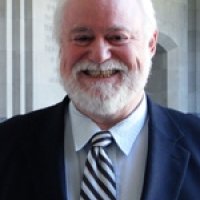Women as Agents of Change: Traditional Practices and Community-Based Social Change in Ethiopia
“If there is one thing to take away from this, it’s that women must gain their personhood.” – Bogaletch Gebre
Catalyzing Change
“[Gebre’s] remarkable model, based on community trust and dialogue, is one from which we can draw many lessons,” said Sharon Weiner, Acting Ambassador at Large, Secretary of State’s Office of Global Women’s Issues. Gebre, winner of the 2013 King Baudouin African Development Prize, has been recognized for her efforts in stopping female genital
mutilation (FGM) in Ethiopia. Weiner recognized the importance of Gebre’s work by pointing to violence against women and girls as a “critical human rights, health, social, and economic issue” that imposes significant costs on society. It is, Weiner said, a “manifestation of the lower status of women and girls around the world.” To solve this problem, then, we must elevate their status and unlock their potential to become agents of change - which is exactly what Gebre’s work is doing. The U.S.G. seeks to support initiatives such as Gebre’s by placing women’s issues at the forefront of its foreign policy and by employing a whole-of-government approach to address these issues. Weiner concluding her remarks by stating that “for this to be a truly effective effort, we will need to work together.”
Turning Rage into Energy
“Kembatti Mentti Gezzimma (KMG) is about more than FGM,” Bogaletch Gebre said. The organization focuses on violence and discrimination — the root causes of FGM — and uses a community-based approach to develop collective solutions to these issues. In this way, Gebre emphasizes that these entrenched problems are in fact solvable. KMG’s successes in Ethiopia prove this; in an area where there was a 100% rate of FGM in 1998, the prevalence dropped precipitously to just 3% in 2002, in addition to reduced rates of HIV/AIDS. The results speak for themselves.
Gebre recounted how as an adolescent, herself a victim of FGM, went onto study epidemiology in Israel. As she pursued her studies and travelled around the world, she felt a desire to help the people in the village in which she grew up. “If I can help just one girl,” she said, “I am doing my job. If I can change, why not my people?” In effect, she channeled the anger she felt about her own experience with FGM into the energy needed to drive KMG. She began with the premise that no parent would willingly hurt their child and mothers choose to make their daughters undergo FGM based on the belief that it helps prepare them to be better mothers/wives. Therefore, Gebre said, once she was able to prove that FGM was actually harmful and yields no benefit, she was able to convince people to abandon the practice.
Listening to the Community
A critical juncture in Gebre’s story occurred when it came to expanding her efforts. Realizing that she couldn’t achieve her goals alone, she turned to the community for assistance. “The community told me that if I did not address their priorities, my issues could not be addressed,” Gebre said. Thus, her efforts toward eliminating FGM would have been for naught, if she did not include the economic, ecological, and social issues that affect the everyday lives of the community she sought to impact. She realized that unless people had safe food, water, shelter, etc., they would be unable or unwilling to conceive FGM as a matter of equal importance. Gebre had to become an active member in community life to gain a true sense of its feelings and aspirations. As a result, Gebre and KMG have been able to create change in “a culture that [has been] fundamentally opposed to human rights.”
Claiming Personhood
From a philosophical perspective Gebre raised an important question: why has violence against women persisted for so long? She pointed to four key worldwide societal trends that, in her opinion, feed this cycle:
1. Women’s contributions to society (in the form of household work, child-rearing, etc.) are largely unknown since they are not included in GDP, the most prominent international measure of value;
2. Many religions, including Christianity and Islam (the two most prominent religions in Ethiopia) sanction women’s inferiority;
3. There is little enforcement of legislative protections for women. Most international laws in this respect are non-binding, and even those that are binding are rarely enforced;
4. Women have never historically had “personhood.” Throughout history, they have consistently been treated as inferior.
This last notion of “personhood” is key to Gebre’s initiatives. To end FGM and violence against women, women must claim their “personhood,” proclaiming themselves as equal with men once and for all. Gebre and KMG can assist with this, but ultimately women will need to stand up for themselves and demand the treatment they deserve. When this happens, there “will be changes not just in women’s lives, but in the whole community’s life.”
Speakers

Hosted By

Africa Program
The Africa Program works to address the most critical issues facing Africa and US-Africa relations, build mutually beneficial US-Africa relations, and enhance knowledge and understanding about Africa in the United States. The Program achieves its mission through in-depth research and analyses, public discussion, working groups, and briefings that bring together policymakers, practitioners, and subject matter experts to analyze and offer practical options for tackling key challenges in Africa and in US-Africa relations. Read more


Maternal Health Initiative
Housed within the Wilson Center's Environmental Change and Security Program, the Maternal Health Initiative (MHI) leads the Wilson Center’s work on maternal health, global health equity, and gender equality. Read more
